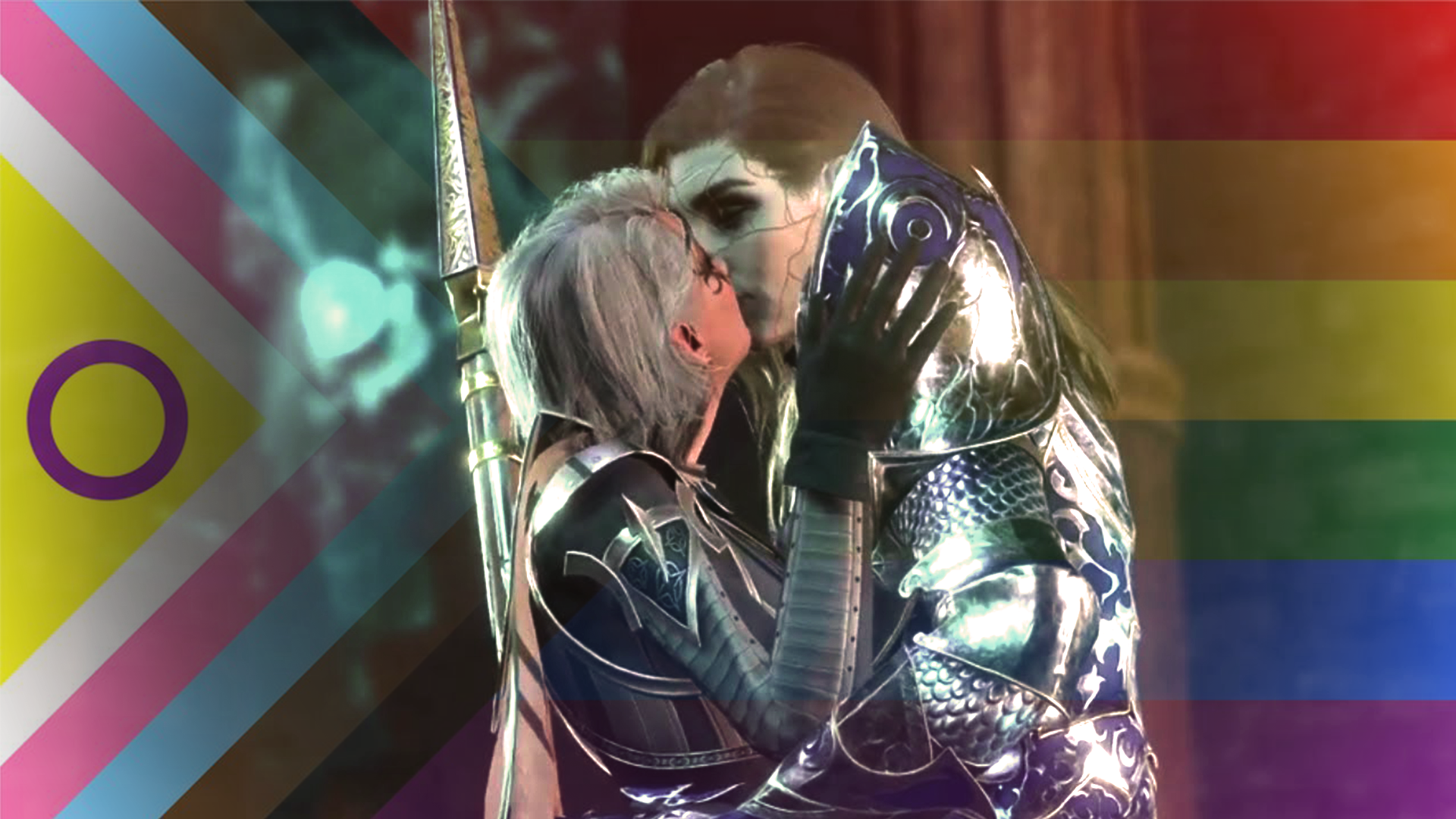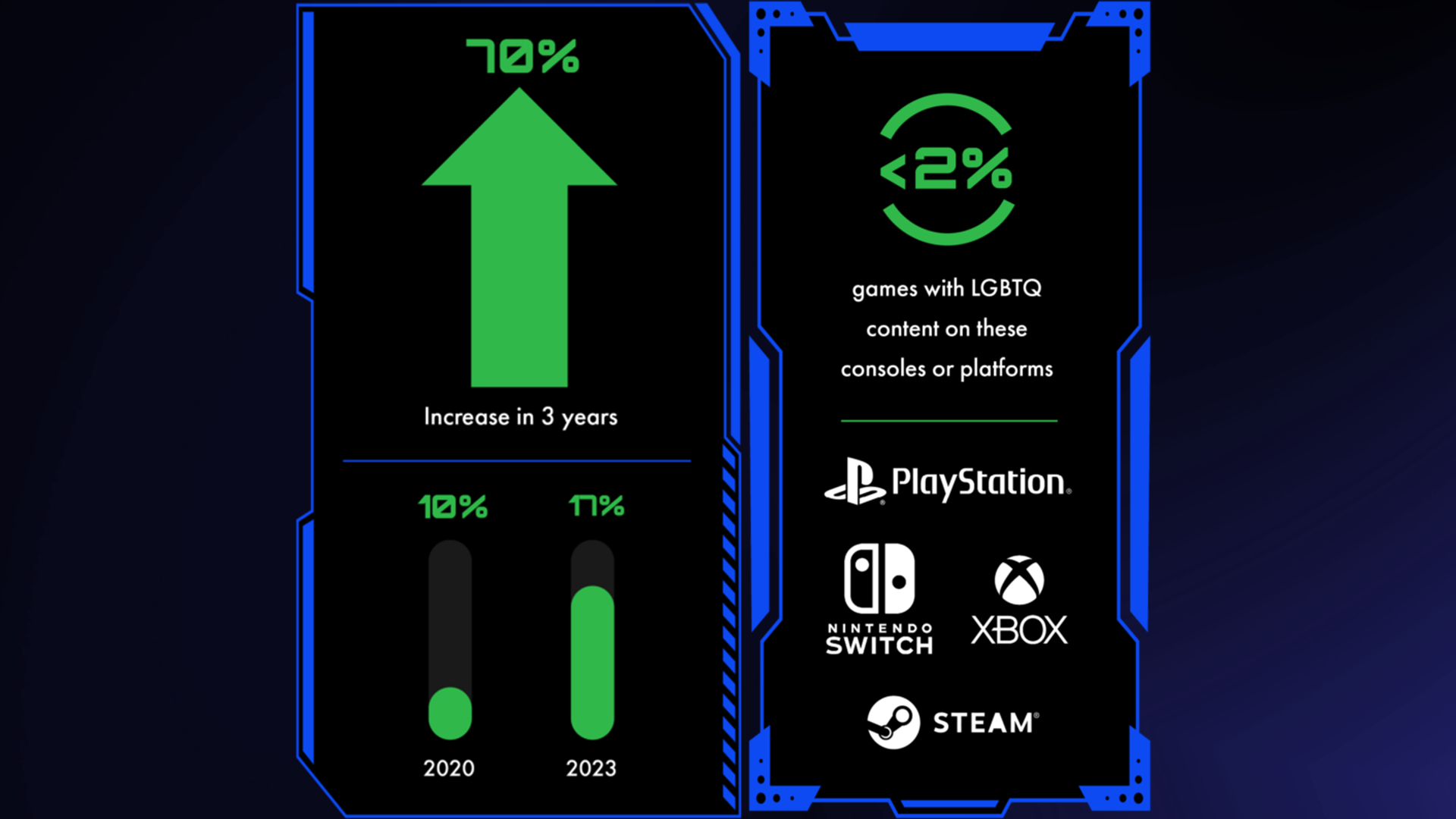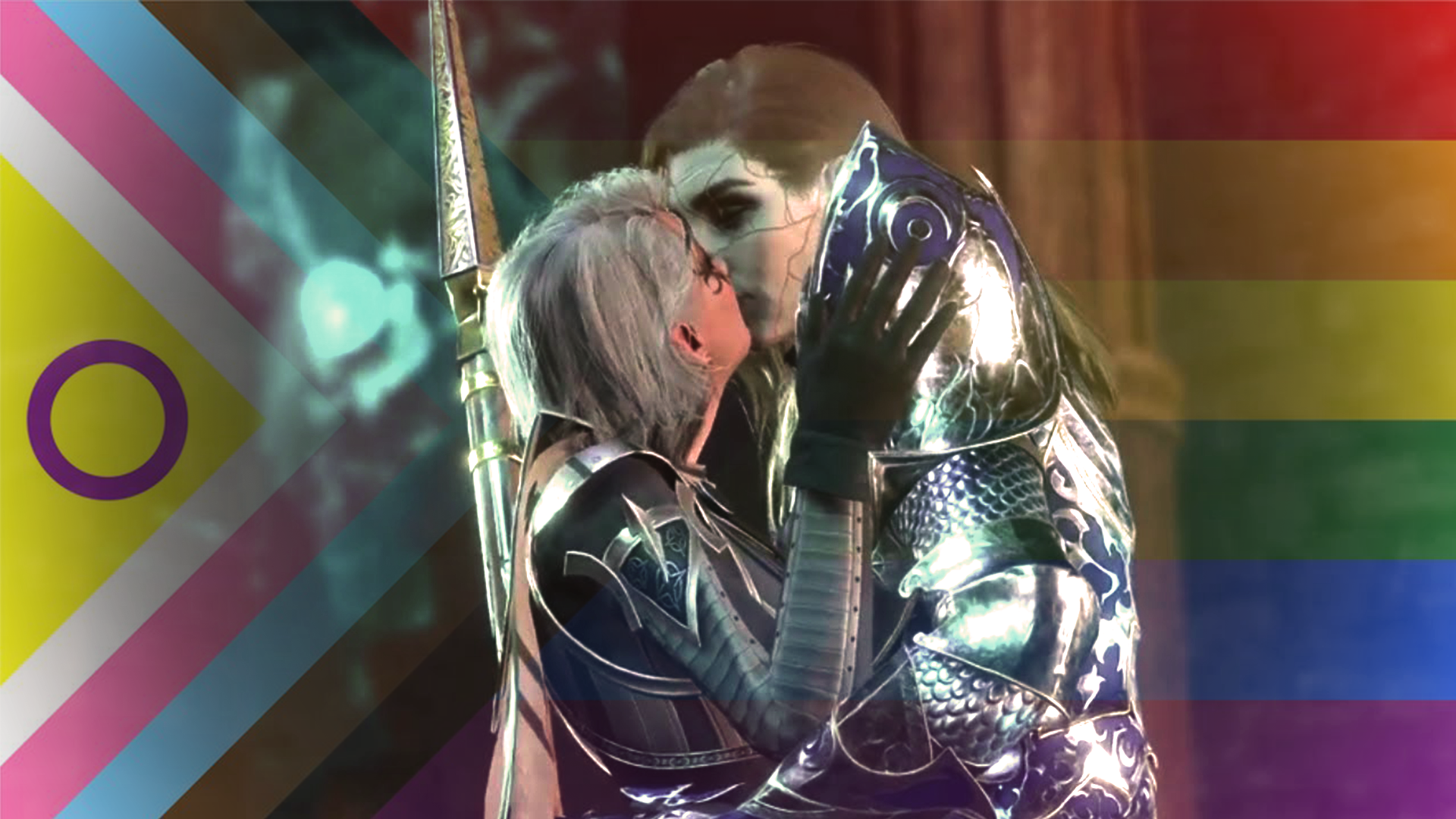Since 2020, a much higher proportion of gamers are now LGBTQ, according to a recent report from GLAAD.

Video games have captivated a diverse range of people for decades. In the span of time video games have existed, not only the technology has evolved, but so has society. On one hand, what was once a niche hobby is now opening up to more and more people, and on the other hand, gamers are living in an increasingly tolerant world. The latest GLAAD Report illustrates how this affects the gaming community and the gaming world in general.
GLAAD Report: 17% Of Active Gamers are LGBTQ – But The Content Is Not
Since 2020, when the LGBTQ+ group of the gaming community was only 10%, this share has increased by 70%. Accordingly, 17% of active players identify as queer. It is also evident that this increase is primarily seen in younger generations, which can be explained for example by more tolerant environments at this age range.
Although the proportion of queer gamers in the community is quite high, the actual gaming content representation has hardly changed in terms of LGBTQ+.In stark contrast to the fact that 1 in 5 active gamers are LGBTQ, games with LGBTQ content account for less than 2% of all games currently available on consoles.

GLAAD has compared the number of games available in the stores of Xbox, PlayStation, Nintendo, and Steam (as of November 2023) with the number of games tagged with LGBTQ. While not all games containing LGBTQ+ content are appropriately labeled, it turned out, the games tagged as LGTBQ+ account for less than 2% of the stores.
As a reason for this low number, it is suspected that video game companies fear a lost of purchasing power of non-LGBTQ+ gamers, among other factors. However, according to GLAAD, this concern is unfounded, as for example a higher representation of queer video game characters does not influence the purchasing decisions of most non-LGBTQ+ gamers or may even have a positive impact.
When it comes to playing as a main character who is gay, lesbian, bisexual, or transgender, over 60% of non-LGBTQ gamers say that it would not make a difference in their decision to buy or play a game. Perhaps surprisingly, 8% of non-LGBTQ gamers would be more likely to buy or play a game with a gay or transgender main player character (and the numbers are even higher for lesbian or bisexual main characters).
Furthermore, the report includes statistics on topics such as the type of representation of LGBTQ+ characters, gamers' opinions on the responsibility of game companies, ongoing harassment concerns, and more.
Blair Durkee, Associate Director of Gaming at GLAAD, concludes the report by once again highlighting the importance of including games in the societal progress and addressing the needs of the LGBTQ+ community.
We believe that LGBTQ inclusion benefits both the video game industry and community. [...] Despite the significant progress we’ve seen, gaming remains woefully behind other forms of entertainment media when it comes to representation.
Queer gamers make up a significant part of the gaming community, and the report shows that the development of the latter is far from complete. What do you think about these statistics? Write it down in the comments!






























